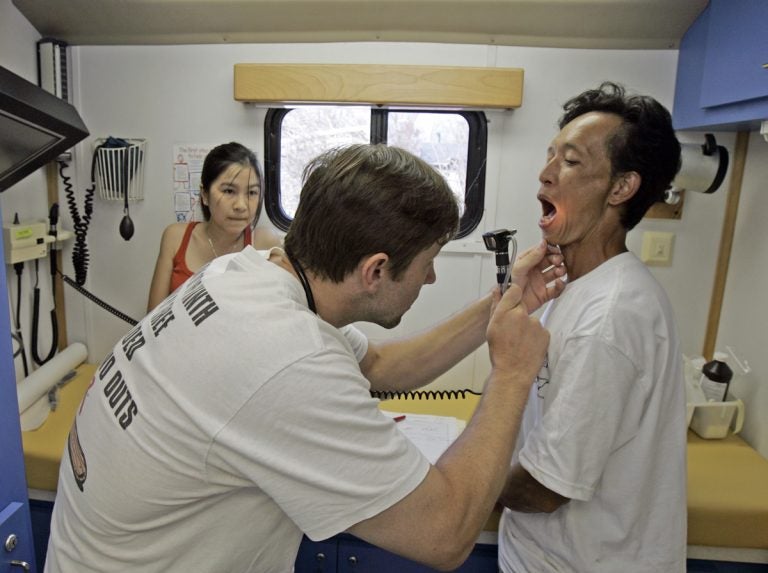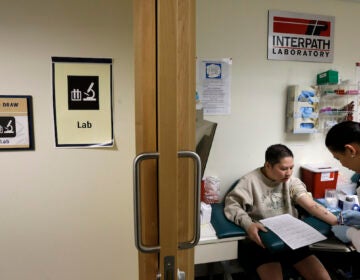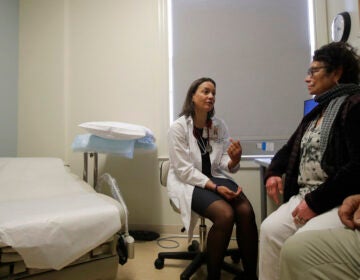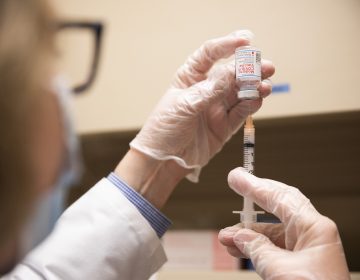Language gap between doctors, patients evident in Philly's Vietnamese community
What happens if you and your doctor don’t speak the same language? According to a new report, that’s the case for many patients across the country.

In this file photo, a Vietnamese translator, Cindy Nguyen, (left), watches while Dr. David Krol from New York city examines Phong Tran in Biloxi, Miss., on Thursday, Sept. 8, 2005. (Darron Cummings/AP Photo)
What happens if you and your doctor don’t speak the same language? According to a new report, that’s the case for many patients across the country.
In Philadelphia the problem is acute among people of Vietnamese background. There are 16,000 of them in the city.
May Beyer, an outreach worker with Penn Asian Senior Services, focuses on the Vietnamese and Chinese communities. Many of the immigrants she works with don’t speak English, she said.
“They may speak … just a few words,” she said, but not enough to tell a doctor how they’re feeling.
And, according to the new report, few doctors in Philadelphia speak Vietnamese.
So, why not hire more translators?
Joel Davis of Doximity, a social networking site for doctors that spearheaded the report, said medical translators are few and far between; only about 7,000 are available in the entire country.
“Medical translation is expensive, and it’s a limited skill set,” he said.
“Physicians who speak the same language as the patients they’re seeing tend to have better outcomes,” he said. And when doctors and patients can’t communicate well, patients unsurprisingly struggle to keep up their end of a treatment plan.
In her experience, Beyer said, people often rely on their children or spouses for help. But that poses different challenges — kids don’t understand medical terminology, and a lot of women don’t want their partners to know if they’ve had an abortion or a sexually transmitted illness.
That’s meant people in Philadelphia’s Vietnamese community have put off routine care, Beyer said, and what starts out as a small health problem often becomes more severe.
“And then it costs even more … for the treatment,” says Beyer.
Both Beyer and researchers from Doximity said the solution could be more bilingual providers.
WHYY is your source for fact-based, in-depth journalism and information. As a nonprofit organization, we rely on financial support from readers like you. Please give today.




